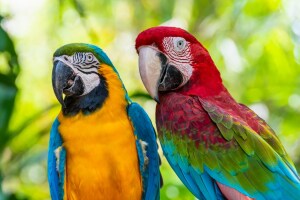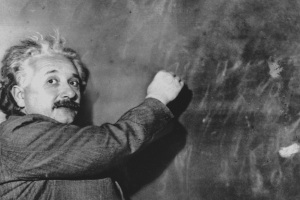Dieser Beitrag ist auch verfügbar auf:
Deutsch
Blockchain technology is set to simplify making money through gaming apps
Applications that allow gamers to earn digital money are becoming increasingly popular. Famous examples range from pioneers such as “Second Life” to blockbusters such as “Roblox” and “Fortnite”. However, most online gaming applications have a central drawback: they are self-contained, closed systems which are not interoperable. This has a number of consequences for the profits generated by those apps.
As a result, virtual currency and virtual items remain tied to the app in which they were earned. It is not possible to transfer them to other apps. As a rule, there is also no way of converting the results into traditional, analog currencies.
When traditional online games are taken offline, users lose their profits forever
This can have disastrous consequences: If a traditional gaming app is shut down by the developer, the virtual goods purchased in its ecosystem also expire. Those who cannot or do not want to continue playing are also at a disadvantage, as the digital profits cannot be transferred to other apps.
Critics say that it is not possible to truly own virtual goods purchased in traditional online gaming apps. Blockchain gaming aims to break free from this limitation.
Blockchain-based gaming apps offer more control over virtual revenue
In blockchain gaming apps, digital goods, currencies and tokens are saved as blockchain entries.
A blockchain is a digital ledger that stores transactions in a secure, immutable chain of data blocks and makes them transparent and accessible to all participants.
All authorized blockchain apps can access these blockchain entries.
By storing virtual goods on the blockchain, they can also be transferred from app to app.
As a result, virtual goods are no longer limited to the apps in which they were purchased.
Virtual goods can also be converted into analog money using exchange apps.
Anyone who wants to make money from gaming can definitely benefit from those features. In addition, blockchain gaming promises to make development easier for game studios.
How blockchain gaming aims to make life easier for game developers
- Developers who would like to add an economic system for managing digital currencies and virtual items no longer need to build it from scratch. Instead, these functionalities can be integrated into the blockchain. The blockchain then stores all the transactions required for the app’s economy system.
- Blockchain technology allows developers to track the financial flow in gaming apps in great detail. As a result, weaknesses in the digital economy can be easily identified, e. g. unbalanced mechanics or bugs that can be exploited to accumulate large sums of money in a short period of time.
- Digital assets can be stored as NFTs. This allows for limited quantities of digital items and the distribution of digital certificates of authenticity.
Blockchain gaming is poised to make it easier for communities to get involved
Blockchain technology allows for more complex financial systems than those found in traditional gaming applications. One of the current trends is to use this advantage to allow the gaming community to participate. This is often done through a DAO, short for Decentralized Autonomous Organization. In online gaming, a DAO is a governance structure that allows players to make decisions about the development and future direction of gaming applications as a collective.
Members of blockchain gaming communities often have the opportunity to contribute through the use of governance tokens. These can usually be purchased by participating in the app’s financial system. As a result, the community can help shape the design of the app according to their ideas and wishes, rather than the development studio making all decisions alone.
Will blockchain gaming replace traditional gaming apps?
Anyone browsing popular gaming forums will inevitably come across a common question asked by blockchain critics: Will there still be gaming applications without blockchain integration in the future?
The answer is yes. Blockchain gaming is best suited to applications for gamers who not only want to test their skills, but also want to invest and make money. Games lacking GameFi features – such as classic action titles – will continue to be made without blockchain features. Needless to say, many classic game lovers’ prejudices against blockchain technology are unfounded. However, they may have to accept that they will miss a number of important innovations in the gaming industry in the coming years.
K4 Rally, a blockchain-based racing game from GAWOONI Games
K4 Rally combines traditional rallying with blockchain technology, NFTs and play-and-earn mechanisms. The app is centered around real-life rally champions and the rally community. The app is developed by a team of gaming experts and rally champions. K4 Rally focuses on simple controls, competitive gameplay and maximum control over digital assets to define a new standard in the gaming industry.
Quelle: YouTube / K4 Rally – Blockchain Racing Game
An interview with Frank Holz, CEO of GAWOONI Games, developers of K4 Rally
1. Frank, how has your perspective of the industry changed over the years, especially when it comes to the adoption of blockchain and Web3?
My perspective has changed a lot. Before, the focus was mainly on graphics and gameplay. With the introduction of blockchain and Web3, the focus has shifted to decentralization, security and ownership of digital assets. These technologies offer new possibilities for transparency and fairness in gaming.
3. How did you decide to develop a blockchain-based racing game? What are the specific challenges compared to traditional game development?
We work with a real racing team and compete in the FIA World Rally Championship. With this in mind, the decision was made to develop a blockchain rally game. We bring real motorsport brands and rally champions into the game, and our community loves it. But the decision to create K4 Rally also came from a desire to give players more control and ownership over their in-game assets. One of the biggest challenges is integrating blockchain technology into the game without compromising the gameplay experience. In addition, ensuring transaction speed and security requires significant technical effort.
3. How do you see the potential of blockchain and Web3 to change the gaming experience, especially in terms of community participation and ownership of in-game assets?
Blockchain and Web3 have the potential to change the gaming experience on a fundamental level. Players can become true owners of their in-game assets and trade them outside of the game. Community participation will be strengthened through decentralized decision-making and governance models, resulting in a closer bond between developers and players.
4. Can you tell us more about the token model of your new game? How will the token be integrated into the game experience and what are the benefits for players?
Our token model is based on a dual system: an in-game token for daily transactions and a governance token for voting and making decisions. Players can earn tokens by winning races, completing challenges or participating in community events. These tokens can be used to purchase vehicles, upgrades and other in-game items.
5. How do you plan to involve the community in the development and growth of the game? Will there be mechanisms for the community to have a direct influence?
We plan to involve the community actively through regular polls, votes and feedback sessions. There will be mechanisms for players to vote on future updates, new features and even the game economy. This will foster a sense of ownership and strengthen the bond with the community.
6. What role do NFTs play in your game? Will it be possible to own or trade unique vehicles or tracks as NFTs?
NFTs play a central role in K4 Rally. Players will be able to own and trade unique vehicles, tracks and other in-game assets as NFTs. These NFTs are not only collectibles, but also offer special abilities or benefits in-game, which increase their value and uniqueness. There are also special edition NFTs of our racers.
7. What are the benefits of blockchain technology for racing games, and what features have you been able to incorporate that would not be possible without blockchain?
Blockchain technology offers many benefits, including transparency, security, and decentralization. Blockchain has allowed us to include features such as secure trading of in-game assets, decentralized tournaments, and a fair reward system. These would have been difficult to implement without blockchain technology.
8. How do you plan to maintain the balance between the fun and the economic side of a blockchain game so that it is not just token speculation?
The balance is maintained through careful gameplay design and a fair reward system. Our focus is on providing a fun and engaging gaming experience where the economic aspects play a complementary role. We avoid excessive token speculation by putting gameplay value first.
9. What are your thoughts on the scalability and current technical limitations of blockchain in gaming? How do you address these in your game?
Scalability is one of the biggest challenges in blockchain gaming. We are addressing this by using Layer 2 solutions and sidechains that allow for faster and cheaper transactions. We are also working closely with blockchain developers to continuously improve the technology.
10. Where do you see the future of Web3 in gaming in the next five to ten years? What role do you think the community will play in the development and success of these games?
In the next five to ten years, Web3 will revolutionize gaming. The community will play a central role as they will not only be consumers but also co-creators of the games. Decentralized platforms and DAOs (Decentralized Autonomous Organizations) will allow the community to directly participate in the development and management of games, leading to a more democratic and inclusive gaming world.

Our expert: Frank Holz
Frank studied economics with a focus on international marketing. He began his career as a marketing consultant for famous companies such as Daimler-Benz, Mercedes-Benz and D2 Mannesmann Mobilfunk (now Vodafone). In 1996, he switched to the games industry. He was Head of Marketing at Infogrames and ATARI. At the beginning of 2008, Frank founded IEM Consulting, a management consultancy specializing in the games industry. In 2021, he founded the studio GAWOONI MetaLabs, which focuses on blockchain gaming and NFTs.






